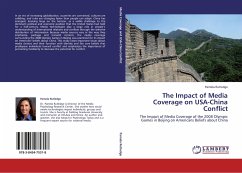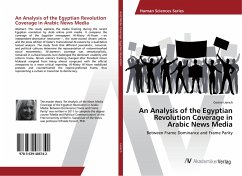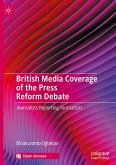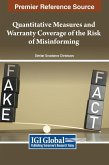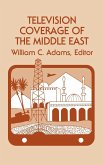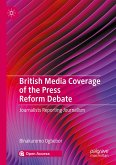In an era of increasing globalization, countries are connected, cultures are colliding, and rules are changing faster than people can adapt. China has emerged, looming large on the horizon, as a visible challenge to the dominant political and economic position that the United States had held for a half-century. Media technologies play a large role in people s understanding of international relations and conflicts through the selective distribution of information. Because media sources vary in the way they emphasize, package and transmit content, the media coverage surrounding the 2008 Olympic Games in Beijing was examined for its impact on Americans' beliefs about China. This study raises important issues about media choices and their function with identity and the core beliefs that predispose individuals toward conflict and emphasizes the importance of promoting familiarity to decrease the potential for conflict.
Bitte wählen Sie Ihr Anliegen aus.
Rechnungen
Retourenschein anfordern
Bestellstatus
Storno

